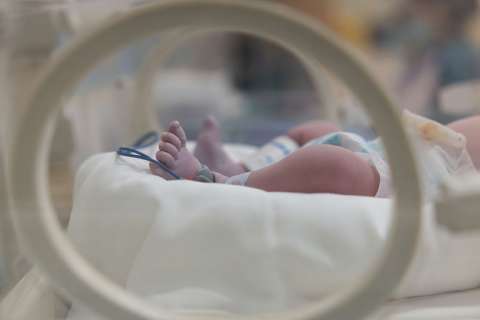A $2 million grant from The Marcus Foundation will support UCLA research aimed at developing a precision medicine strategy to restore sensation in people with spinal cord injury.
The grant will further the work of Dr. Samantha Butler, professor of neurobiology at the David Geffen School of Medicine and a member of the Eli and Edythe Broad Center of Regenerative Medicine and Stem Cell Research at UCLA.
Butler’s research focuses on understanding the mechanisms that establish and regenerate networks of neurons in the spinal cord. Her goal is to develop cell replacement therapies that can regenerate damaged neural circuits and restore sensory function in individuals with spinal cord injuries.
“This funding will allow us to conduct our research in a rigorous, meticulous way, generating invaluable data about these neuronal networks,” Butler said. “I’m deeply touched by The Marcus Foundation’s faith in my scientific program and vision for regenerating diseased or damaged spinal sensory circuits in paralyzed patients.”
The Marcus Foundation, created by philanthropist and Home Depot co-founder Bernard “Bernie” Marcus, supports a wide range of causes, including medical research and healthcare, with a particular emphasis on autism, cellular therapy, oncology, cardiovascular disease and traumatic brain injuries.
“Cutting-edge bioengineering and stem cell research in Dr. Butler's lab has the potential to restore function and feeling for individuals with spinal cord injuries,” said Marcus, founder and chairman of the board of The Marcus Foundation. “Our investment in UCLA's regenerative medicine program aligns with our commitment to supporting groundbreaking medical research that can dramatically improve lives.”

Butler's work centers around dorsal interneurons, which are located in the back of the spinal cord and encode various sensations such as touch, pain, itch and proprioception — the body's ability to sense its position in space. These neurons are traditionally understudied, as the majority of research into spinal cord injuries focuses on motor neurons, which control movement.
Her team has already achieved a significant milestone by creating a method for producing dorsal interneurons from mouse stem cells. Bioinformatic testing has shown that these cells are indistinguishable from their embryonic counterparts. The Marcus Foundation grant will enable the development of a similar protocol for human cells.
The grant will support extensive bioinformatics to track the extent to which the lab-created human neurons from Butler’s new protocols mirror their endogenous counterparts. This research could reveal crucial insights about human neuron development and potentially lead to the creation of neurons from patient-specific cells for cellular therapy.
“Dr. Butler has been at the forefront of understanding the extraordinarily diverse functions of the nervous system for over two decades,” said Dr. Thomas Rando, director of the UCLA Broad Stem Cell Research Center. “This grant is not only a well-deserved recognition of her exceptional research program, but also a testament to the potential translational impacts of basic science.”
The ultimate goal of this research is to discover methods that will lead to transplantation options and multisite clinical trials for the recovery of sensory function after spinal cord injury. Thiswork has far-reaching implications, potentially benefiting not only those with spinal cord injuries but also individuals affected by sensory neuron damage resulting from physical trauma, chemotherapy, autism, aging or other diseases.
“This generous grant from The Marcus Foundation reflects our shared vision to advance medical science and improve patient outcomes,” said Dr. Steven Dubinett, dean of the Geffen School of Medicine and UCLA associate vice chancellor for research. “Dr. Butler is one of the few researchers in the world leading innovative research in sensory regeneration, exemplifying UCLA's commitment to pushing the boundaries of stem cell research. We are profoundly grateful for The Marcus Foundation's partnership, which provides an essential funding mechanism for scientists conducting leading-edge research.”



